38 Teamwork-Building Questions for Paraprofessionals
March 14, 2017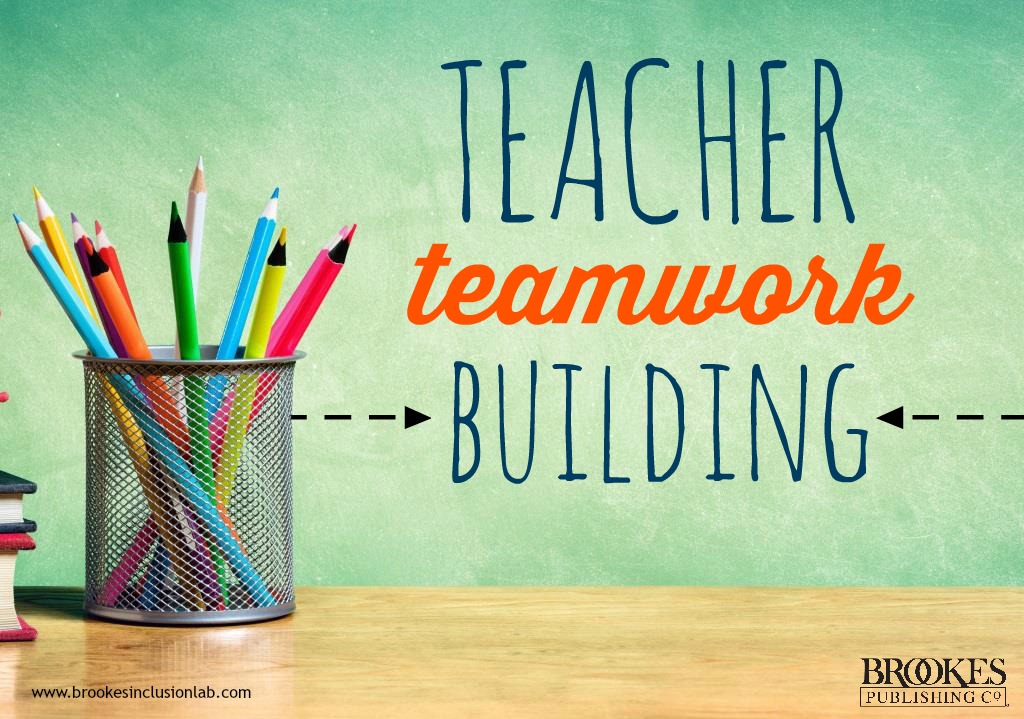
Paraprofessionals play a crucial part in the success of inclusive classrooms. They have a complex job with many different facets: helping teachers plan instruction, supporting positive behavior, maintaining strong communication with the rest of the educational team, and much more. It can be tough to figure out who’s in charge of what, especially in a new paraprofessional-educator partnership–so today we’re giving you a helpful resource for your teamwork-building toolkit.
Today’s post gives paraprofessionals 38 questions they can use to guide their dialogue with general and special educators, as they work together to create a successful partnership. Covering everything from work styles and teaching philosophy to behavior expectations and instruction strategies, these questions are a great starting point for new teaching teams (and a good list for established teams to review, to make sure they’re on the same page).
Would you add any questions to this list? Let us know and we’ll update the post!
Work Styles
- Are you a morning or afternoon person?
- How direct are you?
- Do you like to do several things at once, or do you prefer doing one thing at a time?
- How do you prefer to give feedback to others on your team?
- What do you consider your strengths and weaknesses when working in a team situation?
Philosophy
- What do you think needs to happen in order for all kids to learn best?
- What do you think is the best philosophy for approaching challenging behavior?
- What are the best ways to increase student independence?
- How would you describe what an effective team relationship would look like for us?
Communication
- How should we communicate about students’ history and progress?
- How should we communicate about our roles and responsibilities?
- How and when should we communicate about lessons and modifications?
- If I do not know an answer in class, should I direct the student to you?
- Do we meet often enough? If not, when should we meet?
- How do we communicate with the families? What is each person’s role in this?
- Are there other logistical concerns?
Planning
- What does “advanced planning” mean to you?
- How will I participate in planning instruction for students with and without disabilities? By directly sharing ideas during weekly meetings? Indirectly through informal conversations during the week?
- When and where will these meetings occur?
Instruction
- Will I help implement instruction for both students with disabilities and students without disabilities?
- How will we remember the goals and objectives of each of our students? Will we create a master list or spreadsheet?
- How will I help implement instruction? Will I work one-to-one, with small groups of students, or with the whole class?
- Will I be helping you implement instructional strategies and adaptations that you’ve designed?
- Who will train me to use specific instruction strategies–the general educator or special educator?
- When will this training occur? Daily, weekly, or monthly?
- Who will evaluate the effectiveness of the instruction?
Behavior
- What are our classroom expectations and rules for both student and adults?
- How are these classroom expectations communicated to the students?
- What’s our plan to address unacceptable student behaviors in a timely manner?
- What are the specific roles of the general educator, special educator, and paraprofessional in supporting positive student behaviors?
Confidentiality
- How will we maintain confidentiality in our daily work with students and families?
- How can we support each other in maintaining respectful interactions and being mindful of our school’s confidentiality policies?
- What do we do in situations in which we believe confidentiality is being breached? What are some phrases we can use to discreetly remind each other of confidentiality issues?
Evaluation
- How are most students evaluated? Will we use portfolios, weekly tests, performances, and/or other forms of evaluation?
- Who is responsible for the evaluations?
- How are evaluations the same or different for students with disabilities?
- If students with disabilities will receive a report card, who will adapt the report cards and monitor student progress?
- When will student evaluation occur?
These questions were adapted from two excellent resources for paraprofessionals: The Paraprofessional’s Handbook for Effective Support in Inclusive Classrooms by Julie Causton (questions 1-17) and The Paraprofessional’s Guide to the Inclusive Classroom, Third Edition, by Mary Beth Doyle (questions 18-38). If you want more practical guidance and tools to help you succeed on the job, these books are great additions to your professional library.
MORE RESOURCES FOR PARAPROFESSIONALS
Keep your skills sharp with these freebies from the Brookes resource center:
- [PRINTABLE CHART] A Paraprofessional’s Guide to Creating a Positive Classroom Atmosphere
- [WEBINAR] The Role of the Paraprofessional in the Inclusive Class (presented by Julie Causton, the third of three inclusion webinars from Brookes and the Inclusive Class blog)
- [SLIDES] View the slides from Julie Causton’s Role of the Paraprofessional webinar
- [PRINTABLE POSTER] Print your colorful “New Paraprofessional Job Description” poster
- [PEER SUPPORTS CHART] Get a handy chart of examples that show how to help facilitate peer supports and interactions

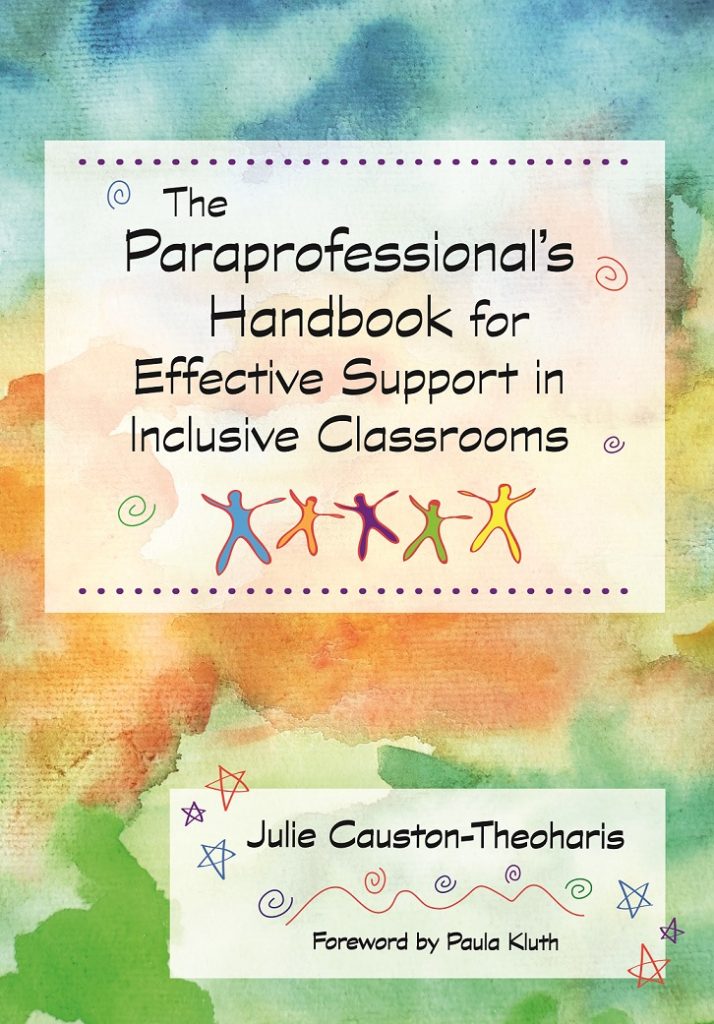
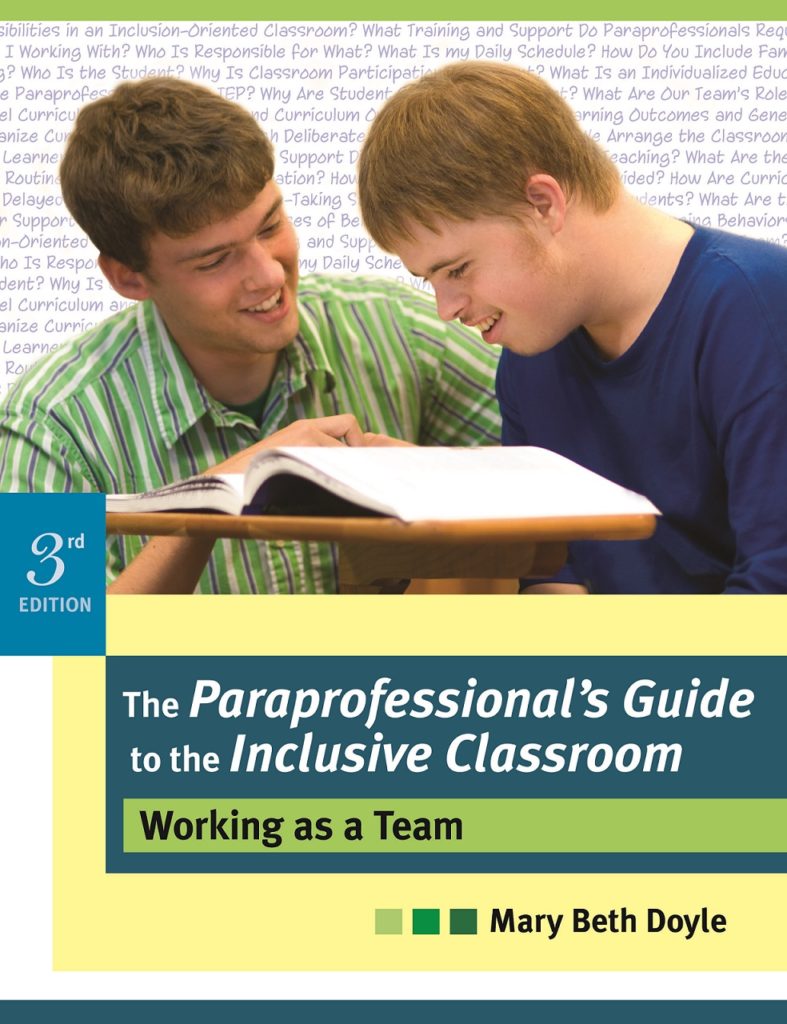
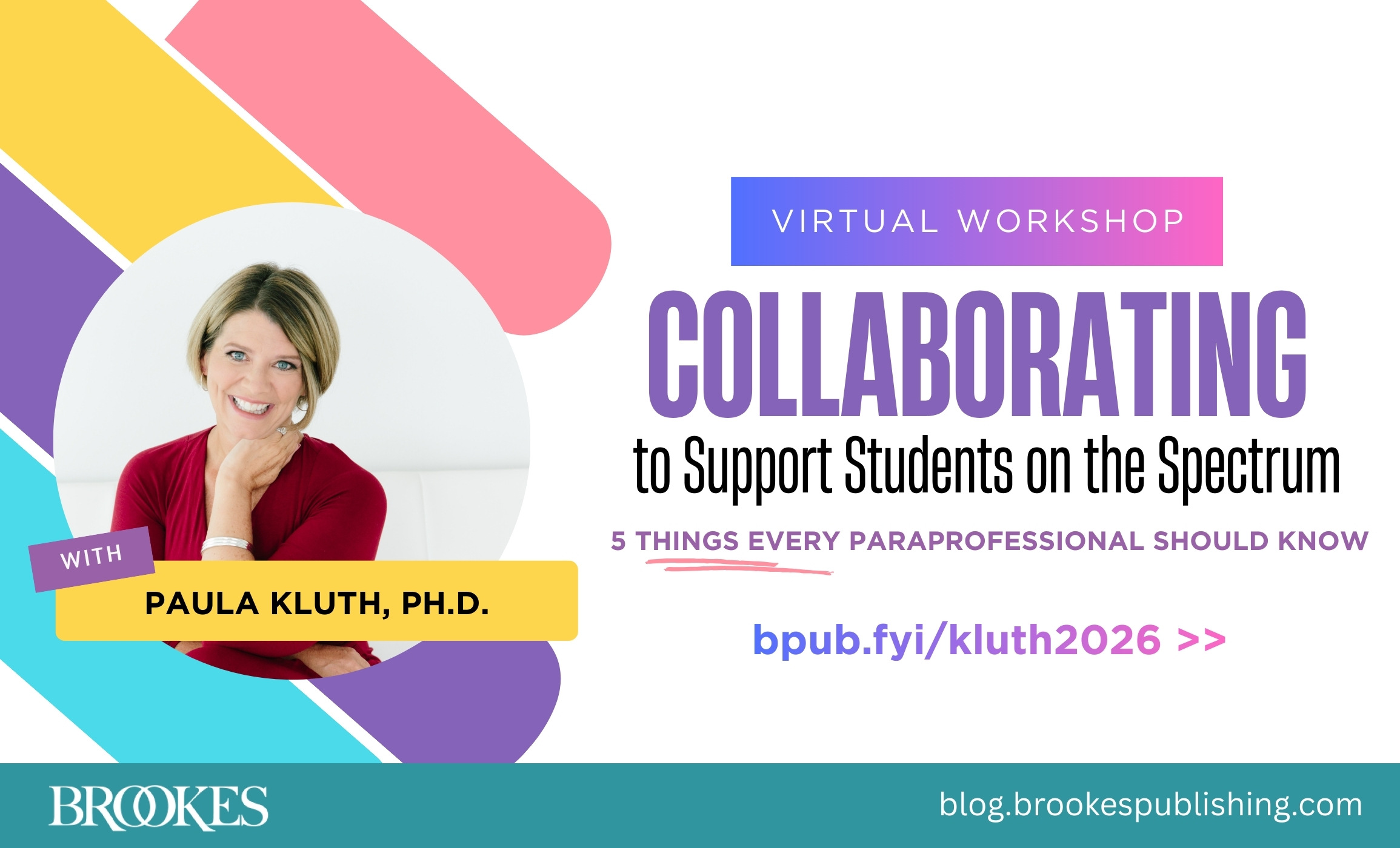
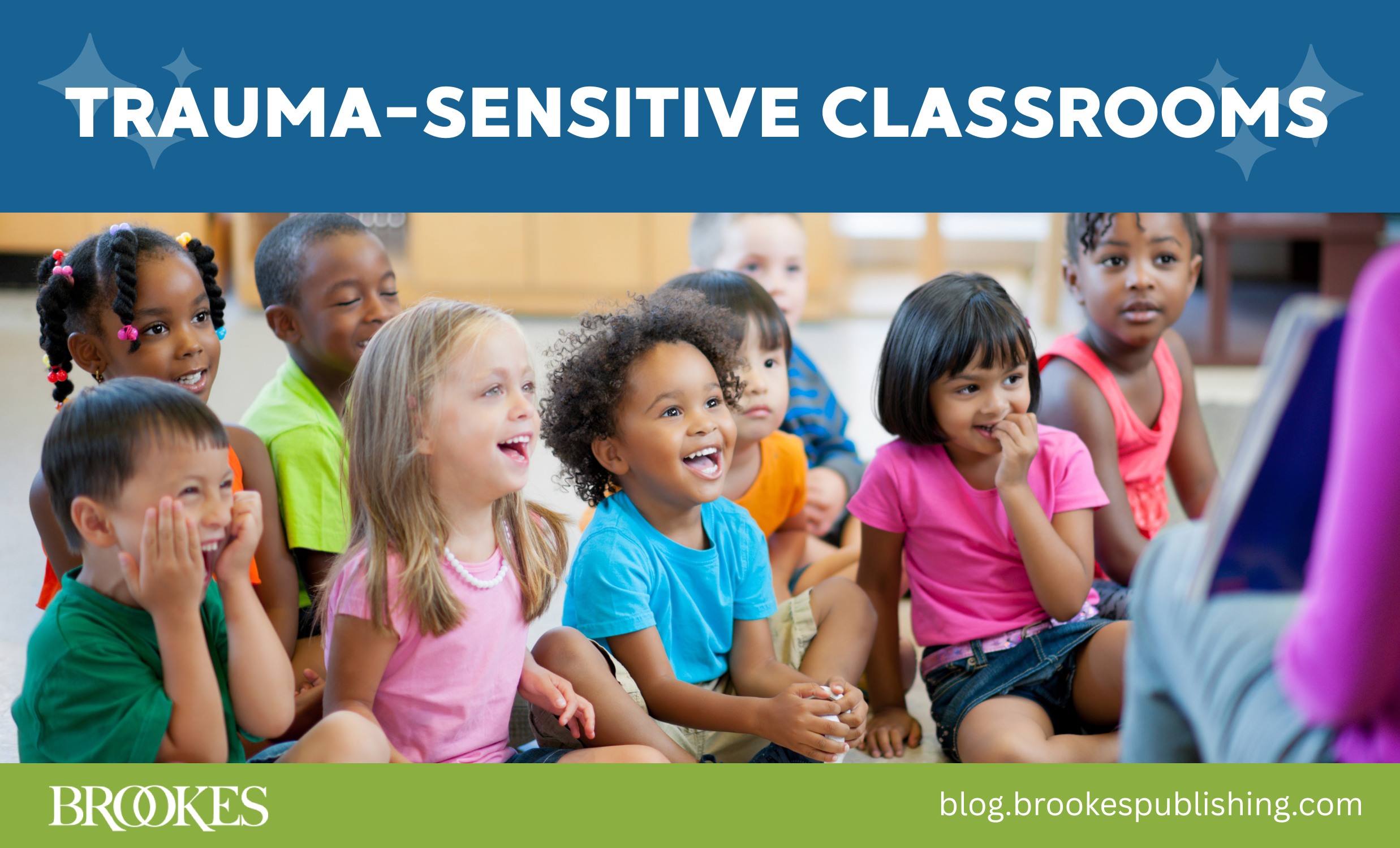
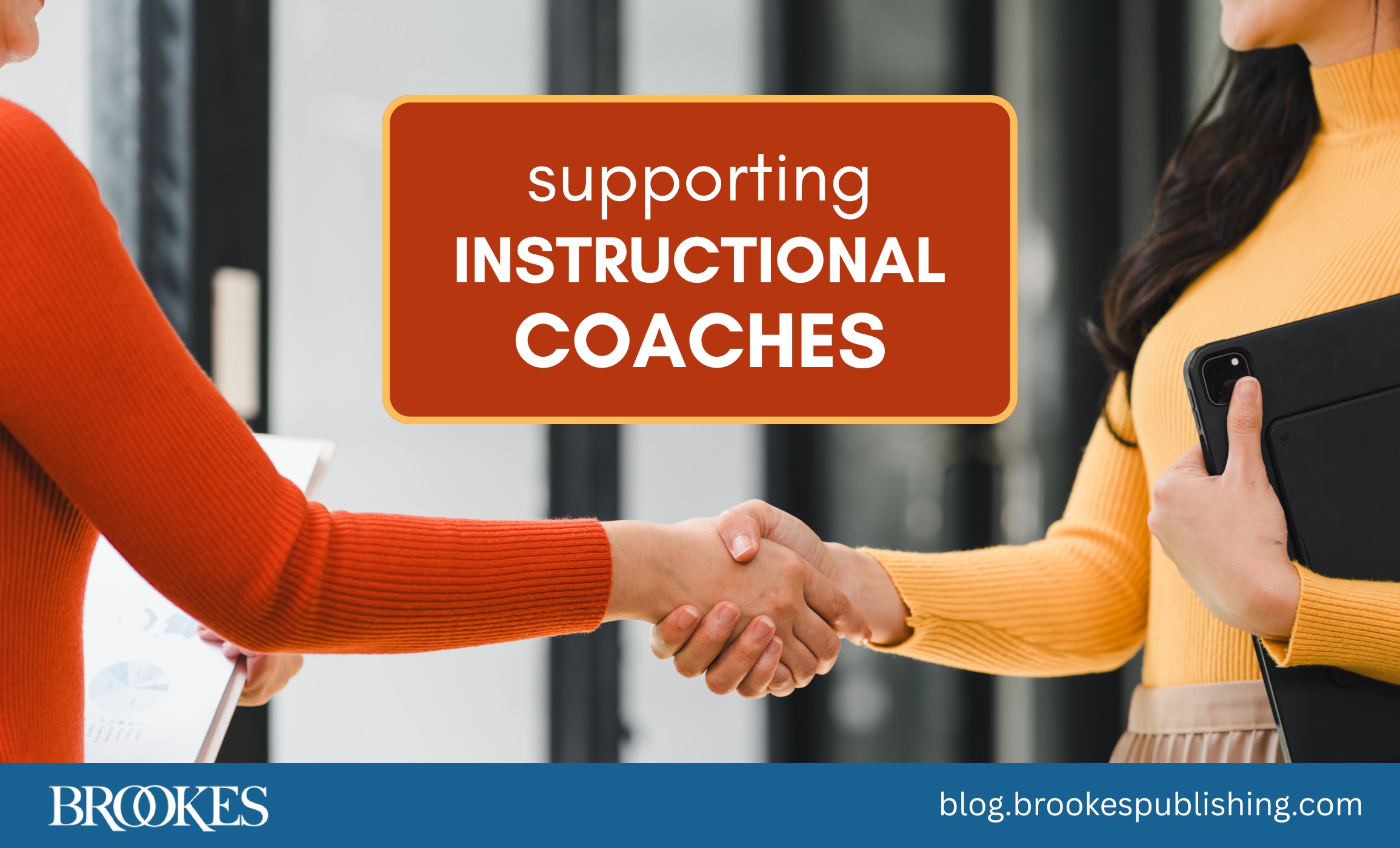
Write a Comment
Your email address will not be published. Required fields are marked *
Post a Comment